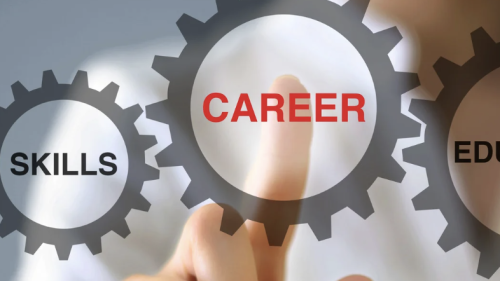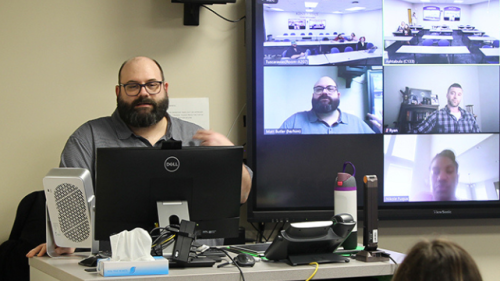The world of sports and performance is evolving, and with it, the demand for professionals who understand the psychological aspects of athletic success is growing rapidly. Athletes, coaches, and organizations are increasingly recognizing the importance of mental fitness alongside physical conditioning. Earning a 100% online Bachelor of Science in Sport, Exercise, and Performance Psychology from Kent State University prepares graduates to thrive in this expanding field by equipping them with the skills to enhance performance, motivation, and well-being.
If you’re passionate about sports and human performance, this degree opens doors to various fulfilling careers. Let’s explore the numerous career opportunities available to graduates of this program.
Career Opportunities
1. Mental Performance Coach
What They Do: Mental performance coaches work directly with athletes, teams, and performers to develop mental strategies that optimize their focus, confidence, and resilience. They use psychological techniques such as visualization, goal-setting, and relaxation to help clients improve their performance under pressure.
Where You Can Work:
- Professional and collegiate sports teams
- Olympic training centers
- Private coaching practices
- Performing arts organizations (musicians, dancers, actors)
Key Skills You’ll Gain:
- Understanding of cognitive and behavioral strategies to improve performance
- Development of customized mental training programs for athletes
- Communication and motivational techniques
Potential Job Titles: Performance Coach, Mental Skills Trainer, High-Performance Consultant
2. Sports Consultant
What They Do: Sports consultants advise sports organizations, athletes, and coaches to improve performance outcomes, team dynamics, and leadership. They often work with schools, universities, and sports governing bodies to develop policies and programs that promote athlete well-being.
Where You Can Work:
- Sports organizations and federations
- Colleges and universities
- Private consulting firms
- Fitness and wellness companies
Key Skills You’ll Gain:
- Application of psychological principles to sports management
- Team-building and leadership development
- Data analysis and performance evaluation
Potential Job Titles: Sports Performance Consultant, Athlete Development Specialist, Talent Development Consultant
3. Athletic Coach with a Focus on Mental Skills
What They Do: Athletic coaches with a background in sport psychology bring a unique advantage to their teams. They integrate mental training techniques into their coaching methods to help athletes build confidence, resilience, and focus alongside their physical training.
Where You Can Work:
- High schools and colleges
- Professional sports teams
- Youth sports organizations
- Private coaching academies
Key Skills You’ll Gain:
- Leadership and motivational strategies
- Techniques to enhance team cohesion and communication
- Mental preparation techniques for competition
Potential Job Titles: Head Coach, Assistant Coach, Player Development Coach
4. Athletic Trainer with a Focus on Psychological Recovery
What They Do: Athletic trainers are responsible for injury prevention, treatment, and rehabilitation, but those with a background in sport psychology have the added advantage of addressing the mental aspects of injury recovery. These professionals help athletes stay motivated, cope with setbacks, and maintain confidence during rehabilitation.
Where You Can Work:
- Hospitals and rehabilitation centers
- Professional sports teams
- Fitness and wellness centers
- Colleges and universities
Key Skills You’ll Gain:
- Techniques for managing performance anxiety and injury-related stress
- Strategies for maintaining motivation during long-term rehabilitation
- Holistic approaches to athlete well-being
Potential Job Titles: Rehabilitation Specialist, Injury Recovery Coach, Certified Athletic Trainer (additional certification may be required)
5. Strength and Conditioning Coach with a Mental Focus
What They Do: Strength and conditioning coaches design and implement training programs to improve athletic performance. With a foundation in sport psychology, they can incorporate mental training techniques to help athletes stay focused, set realistic goals, and overcome performance barriers.
Where You Can Work:
- Professional and collegiate sports teams
- Fitness centers and health clubs
- Private performance training facilities
- Military and tactical training environments
Key Skills You’ll Gain:
- Integration of physical and mental conditioning programs
- Strategies to improve athlete adherence and motivation
- Knowledge of psychological techniques for peak performance
Potential Job Titles: Strength Coach, Conditioning Specialist, Performance Enhancement Coach
6. Health and Wellness Coach
What They Do: Health and wellness coaches with expertise in performance psychology help individuals achieve their personal fitness and wellness goals. They focus on motivation, goal-setting, and behavioral change strategies to support clients in creating sustainable lifestyle habits.
Where You Can Work:
- Corporate wellness programs
- Fitness and rehabilitation centers
- Public health organizations
- Private practice coaching
Key Skills You’ll Gain:
- Behavior change techniques
- Motivation and goal-setting strategies
- Stress management methods for personal well-being
Potential Job Titles: Wellness Coach, Fitness Consultant, Lifestyle Coach
Why Choose Kent State’s Online B.S. in Sport, Exercise, and Performance Psychology?
Kent State’s 100% online program provides a flexible, career-focused curriculum to help students gain real-world skills in mental performance coaching and athletic development. Here’s what sets this program apart:
- Flexible Online Format: Study at your own pace while balancing work and personal commitments.
- Industry-Relevant Curriculum: Courses cover key topics such as motivation, injury psychology, and team dynamics.
- Expert Faculty: Learn from experienced professionals in sport psychology and performance coaching.
- Diverse Career Options: Graduates are prepared for careers in coaching, consulting, and health and wellness roles.
Take the Next Step Toward a Rewarding Career
A degree in Sport, Exercise, and Performance Psychology from Kent State University prepares you to make a meaningful impact in the athletic and performance world. Whether you aspire to coach, consult, or support athletes’ mental well-being, this program provides the knowledge and skills needed to thrive in this growing field.
Ready to launch your career? Explore the Bachelor of Science in Sport, Exercise, and Performance Psychology at Kent State and take the first step toward a rewarding and impactful profession.
Enroll today and turn your passion for sports and performance into a fulfilling career!









